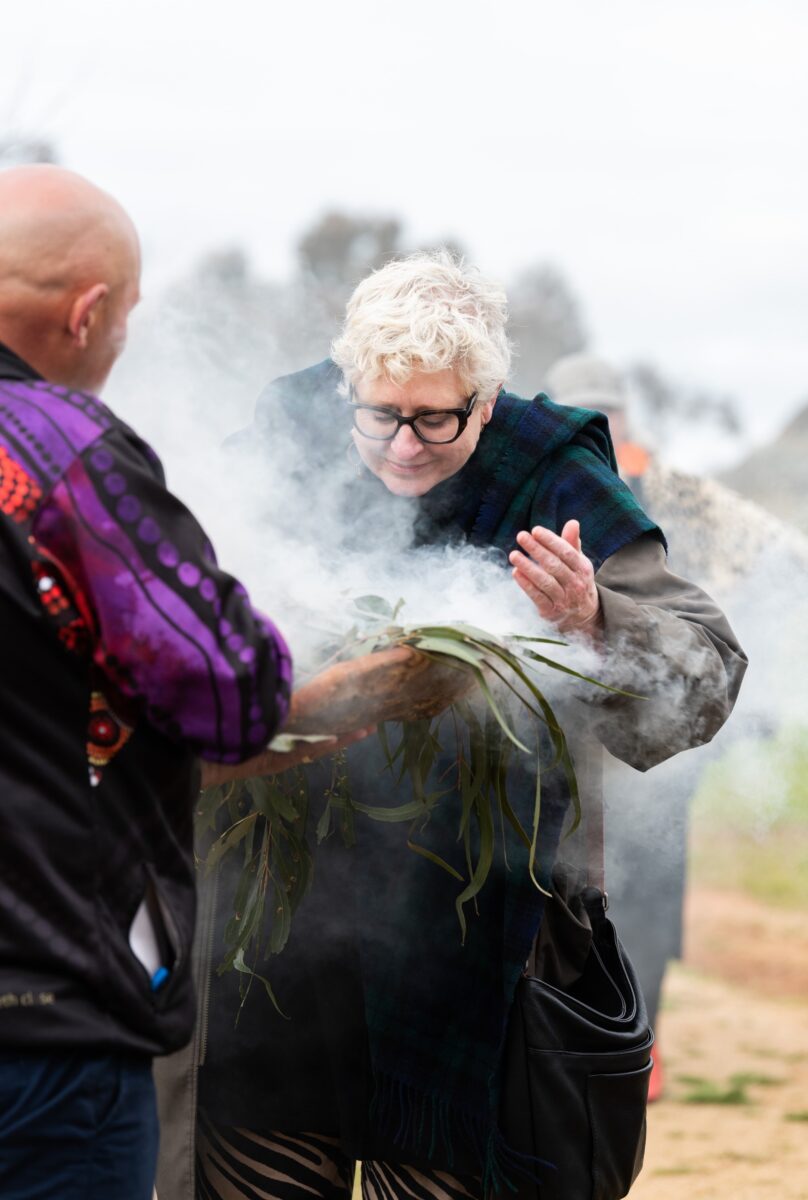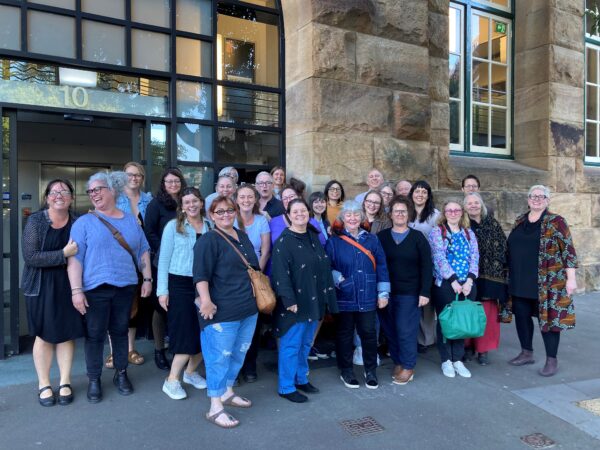
Fair Play Culture Change, an initiative of Diversity Arts Australia that ran from 17 October to 28 November 2022, provided tailor-made capacity-building program to regional NSW and Western Sydney arts and cultural organisations. Supported by Create NSW, this program focused on building capabilities in working with cultural and linguistic diversity. The program culminated in organisations writing comprehensive Equity Action Plans, working with Diversity Arts trainers and mentors to advance and develop their equity and inclusion goals.
Fair Play: Culture Change Program Recipient: Regional Arts NSW
Q&A with Dr Tracy Callinan, CEO
Interview: Simone Amelia Jordan
You’ve travelled the world ‘in pursuit of artistic learnings.’ How is regional NSW special in this regard?
Travelling and working in other countries has given me a great perspective. Of course, that includes appreciating what we have here in Australia, but it’s more than that. Understanding other cultures in depth mean we learn to see the importance of culture and identity and how that affects lives differently. It also enables us to question our environment’s status quo and norms.
I also think it has been a very valuable experience for me to work in places where I have been seen as the ‘other’. I am mindful that as a white woman, I still come from a place of privilege and, in many ways, power, but still, it has been important to know that I have had to respect other ways of doing things and sometimes have had to learn how to adopt these ways. I taught in Africa for a while. I worked as a musician and a silversmith’s assistant in Jerusalem. I have worked closely with a South African arts organisation working with young people in Pretoria and the surrounding townships. I’ve also worked in England at the country’s largest arts funding body, managing a diversity mentoring program for artists. I have worked as a musician in other European countries. In all of these places navigating cultural differences was key to working successfully.
I grew up in regional NSW, but returning to Australia in 2009 and taking up a role in the NSW regional arts network in Bathurst was the first time I had been based in regional NSW since I left at 18 to study at the Sydney Conservatorium of Music. Living regionally offers so much in terms of the physical environment, the sense of community and the ease of getting around. But it has its challenges, too, especially for arts practitioners trying to work at a professional level. I love using the skills and knowledge I have built up over the years to support arts and culture across regional NSW.
What does ‘Culture Change’ (the program’s tagline) mean for arts in the region since undertaking Fair Play?
For a long time, the arts in Australia were dominated by Western culture. But Australia is a diverse country, and slowly but steadily, we have watched this diversity become more visible and respected in Australian arts practice. And celebrated. Arts organisations must embrace this and demonstrate this. Even though I think that the arts workforce is pretty progressive in terms of attitudes and openness, it’s fair to say that the way we embed this in our work cultures has been lagging a bit. We are playing catch-up in ensuring we put structural change into our workplaces.
In the regional arts sector, it has been easy to sideline some of the issues of diversity and inclusion, particularly in the cultural diversity area, because the statistics for much of regional NSW indicate a lower rate of people from diverse backgrounds than in metropolitan areas. I think this makes it even more important to ensure that organisations such as ours that work across the regions address the issues of marginalisation that can come with difference and ‘otherness’. And this needs to be done at an organisational level, not just by general goodwill. Fair Play has been an extremely good program because it doesn’t only get us to look at why supporting diversity and inclusion is important, it challenges us to find the interventions in our practice that will make a difference.
What stood out about the program’s mentors and trainers?
We felt supported throughout the program, and our mentor made it easy for us to complete our Equity Access Plan (EAP). Without the weekly mentor sessions, I don’t think we would have done it so easily, as there are always so many demands on our time. Having the support and some deadlines meant that we got it done and will now get on with the actions we have set for ourselves.
There were some great presentations, too, with perspectives that challenged us. A couple of sessions didn’t quite hit the mark for us. Still, I would have to commend Diversity Arts Australia on identifying very good experts to lead the weekly sessions.

RANSW (Giulia Giorgi)
How far along is Regional Arts NSW regarding an Equity and Inclusion Plan?
Our plan is all signed off by Diversity Arts Australia, and we are now starting to work on the actions. We are embedding it into our reporting processes, too, so that we are constantly monitoring the progress we are making on both our short-term and longer-term goals.
I worked on it with our Admin and Programs Manager Giulia Giorgi, whose life experience has also led her to diverse experiences in the world. We find it interesting that, even though both of us have international experience and consider ourselves quite aware of being inclusive, the program has heightened our awareness and made us more determined to champion greater diversity and inclusion.
Would you recommend the Fair Play program to other individuals and organisations?
I would recommend it and have already done so. I think that participants need to be aware that they are signing up for a significant time commitment, but the course takes ten weeks and then a bit of extra time to complete the EAP, so I think the time commitment for that period is manageable. The fact that it is quite intense when you’re balancing it with many other commitments actually helps you get on with it and complete the plan. And as I think Giulia and I demonstrated, even when you start knowing a bit about the subject, there is so much more you can learn if you’re prepared to allow yourself to be challenged.
